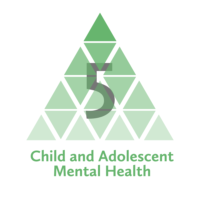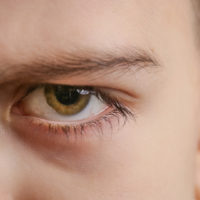Expert guide
-

Most cited CAMH paper joint #5 of 25: Parental Report of Infant Language Skills: A Review of the Development and Application of the Communicative Development Inventories
James Law, Penny Roy.
Read more
Key Practitioner Message includes; Although they (CDIs) are versatile, efficient and valid, they should not be considered a panacea for child language assessment and particularly for predicting persistent language delay. -

New developmentally appropriate diagnostic criteria need to be established to identify ADHD early in preschoolers
Attention-deficit/hyperactivity disorder (ADHD) typically emerges during preschool years and in a subset of children, can persist into adolescence. Early identification might help promote a favourable ADHD trajectory, but the current predictors of ADHD persistence are insufficient.
Read more -

Emotional impulsivity and deficient emotional self-regulation might be core symptoms of ADHD
A large proportion of children with attention-deficit/hyperactivity disorder (ADHD) exhibit notable emotion-related problems (or “emotional symptoms”). These emotional symptoms seem to associate with poor quality of life, impaired social adjustment and reduced marital status.
Read more -

Summary of – Chapter: KidsTime Workshops: Strengthening resilience of children of parents with a mental illness
Summary of a chapter in the book Family Therapy – New Intervention Programs And Researches. The chapter introduces children of parents with mental illness (COPMI) as a group and explains the risk factors and the impact of parental mental illness on children.
Read more -

What does a CAMHS MDT need to know about the genetics of psychiatric disorder?
Our knowledge of the genetics of psychiatric disorders has increased rapidly in recent years. Discover what has been learnt, focusing on some of the psychiatric disorders commonly seen in CAMHS, before going on to discuss how these findings may be relevant to clinical practice.
Read more -

Practitioner recommendations for PTSD: a 2018 update
In 2018, Patrick Smith, Tim Dalgleish and Richard Meiser-Stedman compiled a Practitioner Review for the Journal of Child Psychology and Psychiatry on post-traumatic stress disorder (PTSD) and its treatment in children and adolescents. In their report, the researchers provide updates on the estimated rates of trauma exposure, and the incidence and course of PTSD in children.
Read more -

Prescribing in the dark: off-label drug treatments for children with insomnia
Insomnia is a common problem in children with neurodevelopmental disabilities (NDDs), and has a profound effect on quality-of-life.
Read more -

Reconstructing child psychopathy
Reconstructing child psychopathy into grandiose-manipulative, callous emotional and daring-impulsive traits will facilitate diagnosis and treatment of conduct disorder.
Read more -

A cognitive neuroscience review of the aetiology of ADHD
A simple neurological explanation has yet to identify an aetiology and pathogenesis of the disorder. However, advancements in imaging techniques should help to give a more detailed understanding of the brain regions that are different to those without ADHD.
Read more -

Determining the “IMPACT” of therapeutics for depression requires an adaptive trial design
A large proportion of adolescents suffering from moderate-to-severe major depression respond to psychological and pharmacological therapy, and the range of effective treatment modalities is increasing. Now, Ian Goodyer and Paul Wilkinson have compiled a Practitioner Review that compares the various treatment options available and assesses their effectiveness for adolescents affected by major depressive episodes.
Read more